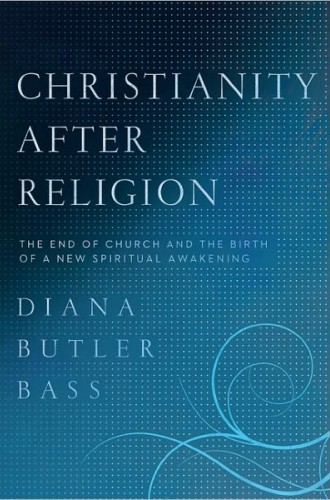Church as problem and solution
In less than a decade Diana Butler Bass has become one of American Christianity’s liveliest and most popular writers on religion and social change. Christianity after Religion, like her previous books, is full of warmth and is written with a winsome accessibility. Bass usually writes in large ways about big subjects while staying grounded in specific stories about particular communities and people; however, in this book she loses that particularizing power.
Books about the Christian faith tend to fall along a spectrum. On one end of the spectrum, the church is the problem; on the other, the church is the solution. Many contemporary books cluster somewhere around the middle, but in the past few years they have been bunching up on the church-is-the-problem side. Christianity after Religion joins these.
Bass’s two previous books, A People’s History of Christianity (2009) and the highly successful Christianity for the Rest of Us (2006), were on the solution side of the spectrum. In both she was clear that Christianity must change and is changing, just as she asserts in her new book, yet in those she told historical and contemporary stories of congregations and small communities of faith that have quietly and sometimes creatively practiced the love of Christ in the midst of such change. In Christianity after Religion she asks, “Despite such examples of vibrant faith, why is Christianity in the United States struggling to maintain its influence, institutions, and numerical strength?” She says up front that she does not believe that it is “wise to adapt religions to contemporary tastes willy-nilly,” but the bulk of the book is an effort to “reform, renew, and reimagine ancient traditions in ways that make sense to contemporary people.”






